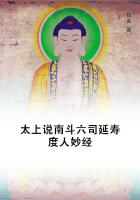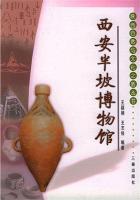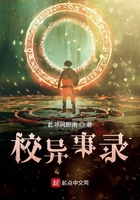ALL SPECULATIONS concerning forms of government bear the impress, more or less exclusive, of two conflicting theories respecting political institutions; or, to speak more properly, conflicting conceptions of what political institutions are.
By some minds, government is conceived as strictly a practical art, giving rise to no questions but those of means and an end.
Forms of government are assimilated to any other expedients for the attainment of human objects. They are regarded as wholly an affair of invention and contrivance. Being made by man, it is assumed that man has the choice either to make them or not, and how or on what pattern they shall be made. Government, according to this conception, is a problem, to be worked like any other question of business. The first step is to define the purposes which governments are required to promote. The next, is to inquire what form of government is best fitted to fulfil those purposes. Having satisfied ourselves on these two points, and ascertained the form of government which combines the greatest amount of good with the least of evil, what further remains is to obtain the concurrence of our countrymen, or those for whom the institutions are intended, in the opinion which we have privately arrived at. To find the best form of government; to persuade others that it is the best; and having done so, to stir them up to insist on having it, is the order of ideas in the minds of those who adopt this view of political philosophy. They look upon a constitution in the same light (difference of scale being allowed for) as they would upon a steam plough, or a threshing machine.
To these stand opposed another kind of political reasoners, who are so far from assimilating a form of government to a machine, that they regard it as a sort of spontaneous product, and the science of government as a branch (so to speak) of natural history. According to them, forms of government are not a matter of choice. We must take them, in the main, as we find them. Governments cannot be constructed by premeditated design. They "are not made, but grow." Our business with them, as with the other facts of the universe, is to acquaint ourselves with their natural properties, and adapt ourselves to them. The fundamental political institutions of a people are considered by this school as a sort of organic growth from the nature and life of that people: a product of their habits, instincts, and unconscious wants and desires, scarcely at all of their deliberate purposes. Their will has had no part in the matter but that of meeting the necessities of the moment by the contrivances of the moment, which contrivances, if in sufficient conformity to the national feelings and character, commonly last, and by successive aggregation constitute a polity, suited to the people who possess it, but which it would be vain to attempt to superduce upon any people whose nature and circumstances had not spontaneously evolved it.
It is difficult to decide which of these doctrines would be the most absurd, if we could suppose either of them held as an exclusive theory. But the principles which men profess, on any controverted subject, are usually a very incomplete exponent of the opinions they really hold. No one believes that every people is capable of working every sort of institutions. Carry the analogy of mechanical contrivances as far as we will, a man does not choose even an instrument of timber and iron on the sole ground that it is in itself the best. He considers whether he possesses the other requisites which must be combined with it to render its employment advantageous, and in particular whether those by whom it will have to be worked possess the knowledge and skill necessary for its management. On the other hand, neither are those who speak of institutions as if they were a kind of living organisms really the political fatalists they give themselves out to be. They do not pretend that mankind have absolutely no range of choice as to the government they will live under, or that a consideration of the consequences which flow from different forms of polity is no element at all in deciding which of them should be preferred. But though each side greatly exaggerates its own theory, out of opposition to the other, and no one holds without modification to either, the two doctrines correspond to a deep-seated difference between two modes of thought; and though it is evident that neither of these is entirely in the right, yet it being equally evident that neither is wholly in the wrong, we must endeavour to get down to what is at the root of each, and avail ourselves of the amount of truth which exists in either.
Let us remember, then, in the first place, that political institutions (however the proposition may be at times ignored) are the work of men; owe their origin and their whole existence to human will.
Men did not wake on a summer morning and find them sprung up.
Neither do they resemble trees, which, once planted, "are aye growing" while men "are sleeping." In every stage of their existence they are made what they are by human voluntary agency. Like all things, therefore, which are made by men, they may be either well or ill made; judgment and skill may have been exercised in their production, or the reverse of these. And again, if a people have omitted, or from outward pressure have not had it in their power, to give themselves a constitution by the tentative process of applying a corrective to each evil as it arose, or as the sufferers gained strength to resist it, this retardation of political progress is no doubt a great disadvantage to them, but it does not prove that what has been found good for others would not have been good also for them, and will not be so still when they think fit to adopt it.















